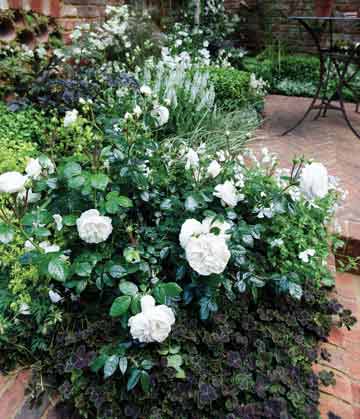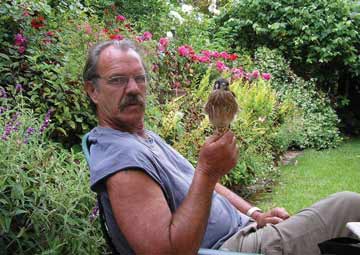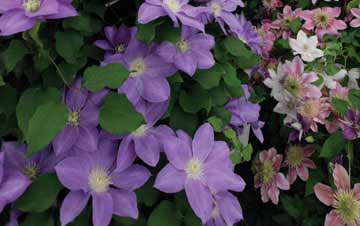|
|
|
|
Tom Ogren makes his first visit to Chelsea. Find Tom at www.allergyfree-gardening.com. |
This past May 18th I had the pleasure of visiting the Chelsea Flower Show on press day, ahead of the crowds, when all was fresh and new. I went as an aide to Ann Davies, the lady who, more than any other, over the years has made sure that the Chelsea Show is accessible to the handicapped, especially to those in wheelchairs.
Jacob's Ladder garden at Chelsea 2009
Chelsea in 2009 had several recurring themes: going green and global warming, making do with less in a rocky economy, and education. These three are all worthy goals, certainly, but I was curious as to what Chelsea offered those folks with serious allergy concerns.
I saw no allergy-free food being served, anywhere, no gluten-free or dairy-free
offerings, although it is
possible there were some and that I missed them. I also saw zero emphasis being placed on low-pollen landscapes, on pollen-free landscapes, in fact on any kind of landscape that was designed to be friendly to those with allergies. A tall, narrow-growing male clone of English bay was also much in evidence. Bay trees are not normally much of an allergy problem, but these new male-clonal ones will be. In the press booth where literature was being passed out, I picked up a sheet from an English agricultural school, Writtle College, and saw that they claimed, because of global warming, ‘warm-winter species such as olive and bottlebrush were now being widely grown in the UK’.
Tom in his garden in California - with Kestrel
But all was not amiss per allergy-free gardening at Chelsea. Inside the big-tented area was the most glorious display of flowers from UK growers. Nary a one of them was promoting any plants as allergy-friendly, and yet some of them indeed were. I saw many fabulously handsome double-flowered, pollen-free begonias on display while, at the totally awesome display of clematis from Thorncroft Clematis Nursery, I discovered that they had three different pollen-free clematis cultivars in their catalogue. One of these allergy-free clematis, ‘Early Sensation’, is an all-female plant (thus no pollen) with bright white flowers and rich green foliage.
Thorncroft Nurseries' clematis
If the right designer knows what to look for, there are hundreds of marvellous plant choices of pollen-free (usually all-female) plants, and it would be great to see a pollen-free display garden at the Chelsea Flower Show.
First published in 2009 Articles on allergen-free gardening
|















